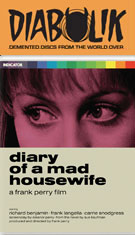

Color, 1971, 95 mins. 15 secs. / 90 mins. 15 secs.
Directed by Frank Perry
Starring Carrie Snodgress, Richard Benjamin, Frank Langella
Indicator (Blu-ray) (UK RB HD), Kino Lorber (Blu-ray & DVD) (US RA/R1 HD/NTSC) / WS (1.85:1) (16:9)
One of the great 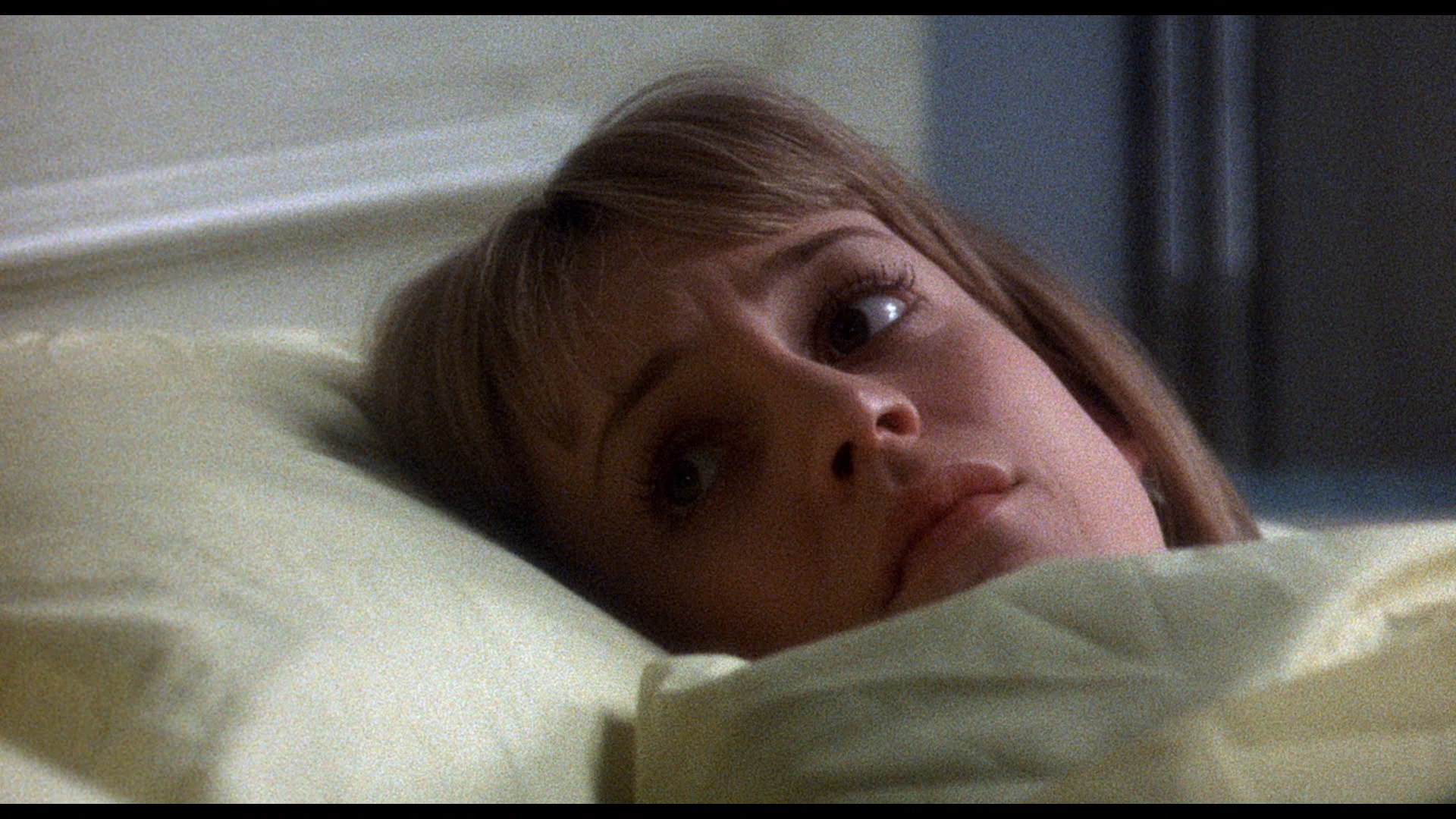 couples of the American indie scene of the '60s and '70s, director
couples of the American indie scene of the '60s and '70s, director 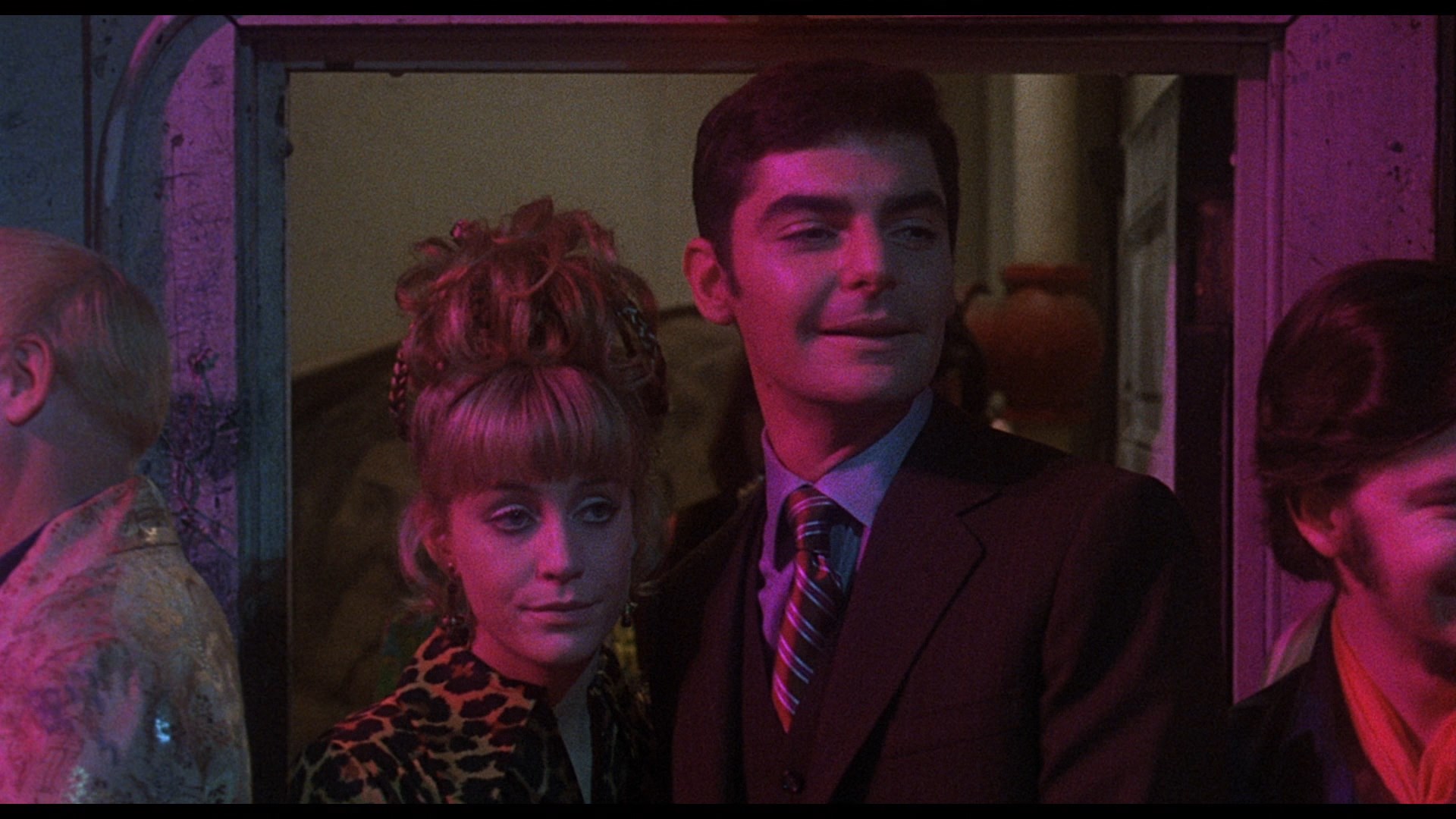 Frank Perry and writer Eleanor Perry turned heads with their ultra low-budget debut David and Lisa, acclaimed TV work including A Christmas Memory, the harrowing Ladybug, Ladybug, and their rocky move to studio filmmaking with the haunting The Swimmer and Last Summer. The swan song for their personal and professional partnership arrived with 1971's Diary of a Mad Housewife, adapted from Sue Kaufman's 1967 novel. The film was a major calling card for its star, Carrie Snodgress (who nabbed an Oscar nomination but stepped away from the industry to focus on her personal life with Neil Young and their son until her eventual return to the screen in 1978's The Fury. Shown entirely through the eyes of its title character, the film was extremely successful upon its release albeit somewhat divisive for its outspoken depictions of feminism and sexuality during a transitional period in Hollywood filmmaking. After that its very spotty history on TV and home video gave the film a bit of a mystique, with it eventually falling out of circulation for several decades until its dual Blu-ray releases in the U.K. and U.S.
Frank Perry and writer Eleanor Perry turned heads with their ultra low-budget debut David and Lisa, acclaimed TV work including A Christmas Memory, the harrowing Ladybug, Ladybug, and their rocky move to studio filmmaking with the haunting The Swimmer and Last Summer. The swan song for their personal and professional partnership arrived with 1971's Diary of a Mad Housewife, adapted from Sue Kaufman's 1967 novel. The film was a major calling card for its star, Carrie Snodgress (who nabbed an Oscar nomination but stepped away from the industry to focus on her personal life with Neil Young and their son until her eventual return to the screen in 1978's The Fury. Shown entirely through the eyes of its title character, the film was extremely successful upon its release albeit somewhat divisive for its outspoken depictions of feminism and sexuality during a transitional period in Hollywood filmmaking. After that its very spotty history on TV and home video gave the film a bit of a mystique, with it eventually falling out of circulation for several decades until its dual Blu-ray releases in the U.K. and U.S.
Stuck in a marriage to condescending, social-climbing lawyer Jonathan (Benjamin), Tina Balser (Snodgress) seems to be increasingly checking out of her daily 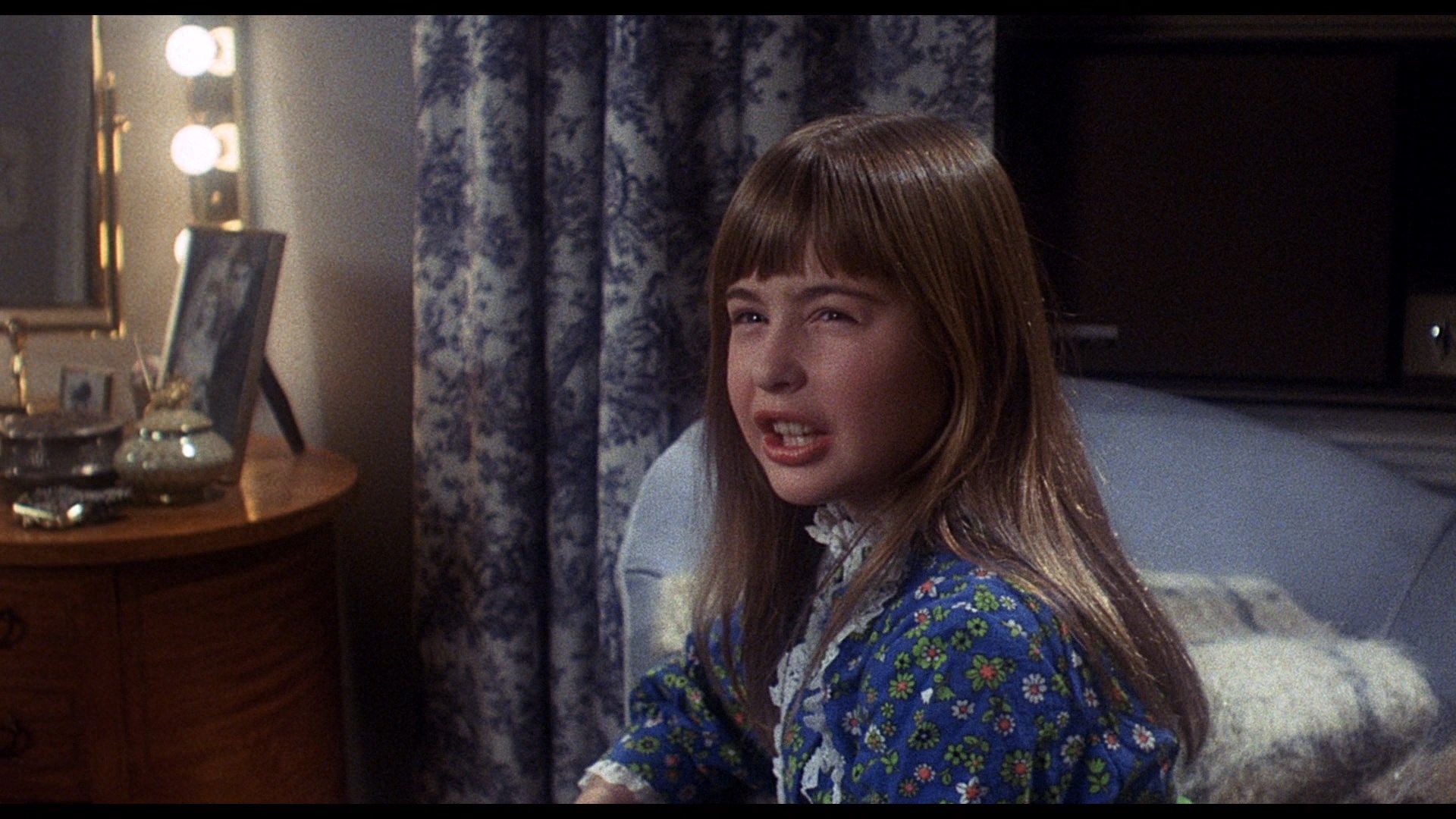 existence that also involves raising two equally insufferable young daughters. During a night out at a hip party in New York City with her husband, she crosses paths with writer George Prager (Langella) and begins
existence that also involves raising two equally insufferable young daughters. During a night out at a hip party in New York City with her husband, she crosses paths with writer George Prager (Langella) and begins 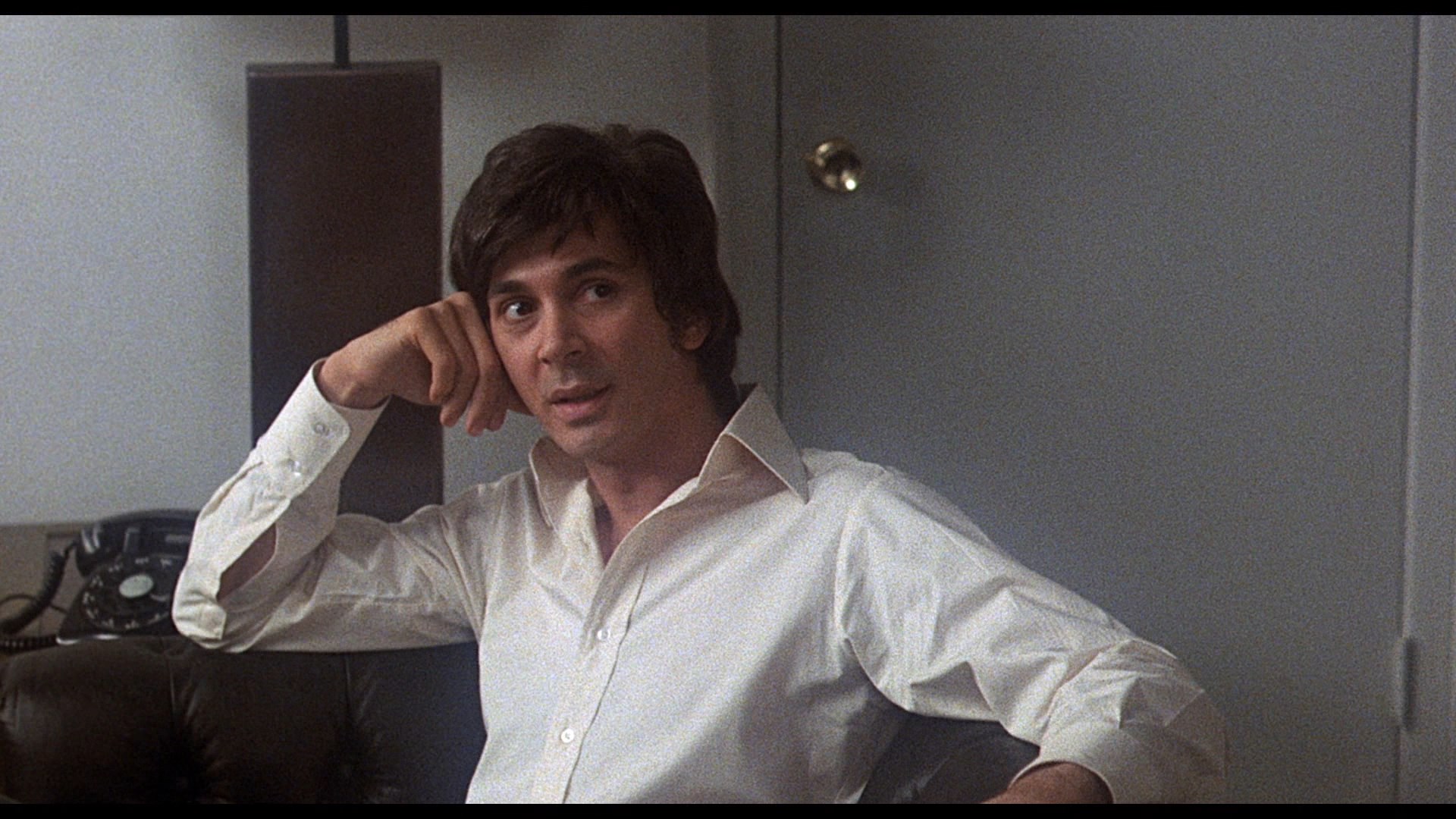 an affair that proves to be just as verbally and psychologically abusive, albeit in a different way. Attempts to deal with her life via group therapy prove frustrating as well until a twist of fate shakes up her domestic situation in a way to might pave a way forward.
an affair that proves to be just as verbally and psychologically abusive, albeit in a different way. Attempts to deal with her life via group therapy prove frustrating as well until a twist of fate shakes up her domestic situation in a way to might pave a way forward.
Though a description of this film makes it sound like a grueling psychodrama, the Perrys made the wise choice here of playing it more like a pitch-black comedy seen through Snodgress' eyes from start to finish. Sort of a spiritual cousin to Ira Levin's The Stepford Wives from the following year, the film offers a caustic snapshot of the agitated state of feminism at the turn of the '70s as women were revolting against society's rigid and wildly unbalanced standards more than ever before. It's really Snodgress' show all the way as she uses her expressive eyes to reveal waves of thought processes far beyond her dialogue, though both Benjamin and Langella make vivid impressions as two of the most despicable characters from that Hollywood era. Pop culture fans will also dig an early appearance by none other than Alice Cooper during that early party scene, too!
After hitting VHS from Universal with a quick budget version from Goodtimes, Diary went out of commission for some reason for decades after the '80s 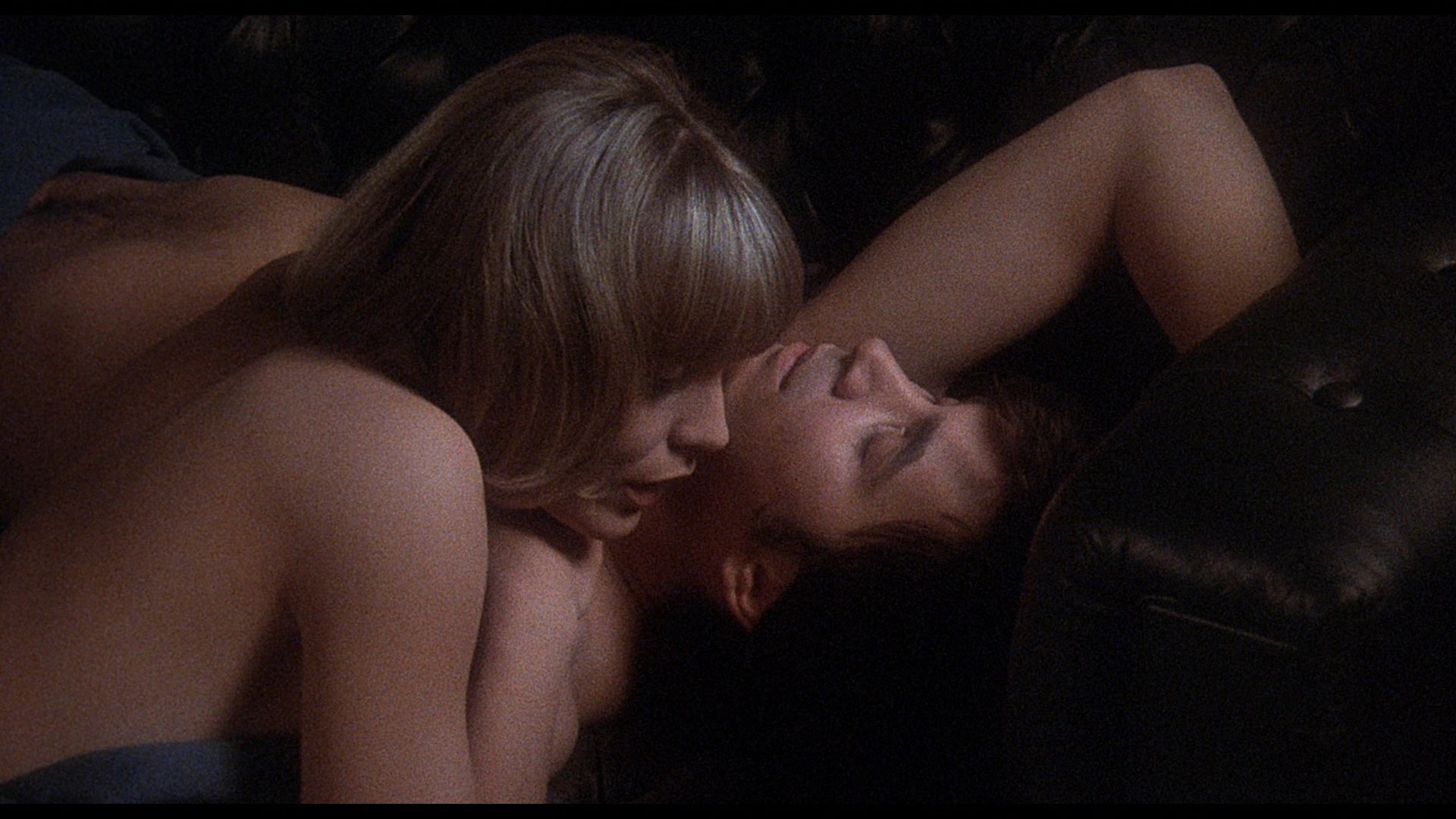 until the studio gave it a nice remaster. That HD version first turned up on Blu-ray and DVD from Kino Lorber in 2021 featuring the trailer and a new commentary by screenwriter Larry Karaszewski, Howard S. Berger, and Steve Mitchell. In
until the studio gave it a nice remaster. That HD version first turned up on Blu-ray and DVD from Kino Lorber in 2021 featuring the trailer and a new commentary by screenwriter Larry Karaszewski, Howard S. Berger, and Steve Mitchell. In 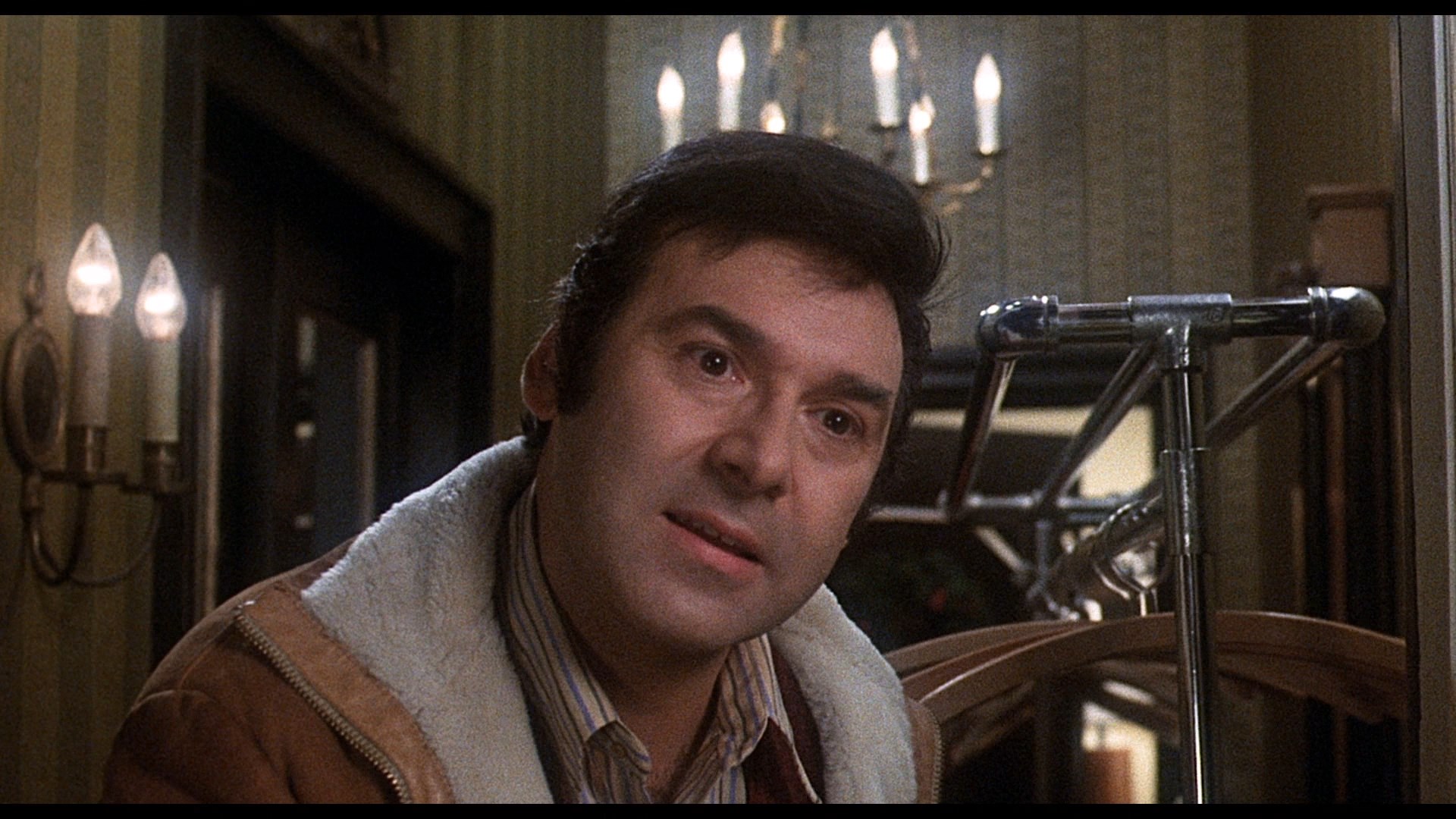 2022, Indicator bowed in on U.K. Blu-ray featuring the same excellent new scan with a crisp LPCM English mono track and optional English subtitles. A huge plus here is the home video debut of the elusive and somewhat notorious 90-minute network TV version, which omits all of the nudity and then-shocking profanity while adding a substantial amount of material from the cutting room floor. The Perrys had nothing to do with this version, but it's a fascinating curio with a radically reconfigured opening sequence, more of Snodgress' adventures in the city, and other bits here and there that are nice to see finally preserved courtesy of the only copy in existence provided by Perry assistant Lydia Wilen. The theatrical cut comes with a new, very amiable audio commentary by Lee Gambin and Rutanya Alda (who acted in Frank Perry's Mommie Dearest), essentially an off-the-cuff conversation about the Perrys and '70s filmmaking. There's a lot of dishy material here including Alda's less than stellar professional memories of Snodgress. The TV version comes with a new commentary by Frank Perry biographer Justin Bozung, who has tons of production detail on hand as well as lots of info about this particular version (which was one of many reworkings by Universal's in-house TV crew who also performed infamous cinematic surgery on films like Earthquake, Two-Minute Warning, Eye of the Cat, and most of the Airport films). The brief "A Confident Approach" (5m44s) is a 2011 interview with Benjamin chatting about how Perry and other directors he worked with impacted his own move behind the camera, while the new "Feminine Mystique" (30m41s) by Chris Innis contextualizes the film's placement within second-wave feminism and its significance as the final work together by both Perrys. Also included are the original trailer, a Trailers form Hell version hosted by Karaszewski, three radio spots, and an image gallery. The enclosed booklet is also essential thanks to a new essay by Paula Mejía, "Postcards from the Ledge" (including an appraisal of the film as the peak of Eleanor Perry's output before she ran into a Hollywood wall going solo), a profile of Kaufman, a "Husbands and Wives" batch of extracts from interviews with Snodgress and both Perrys, a "Motion Pictures (for Carrie)" look at the actress' impact in the role on Neil Young, and sample critical responses.
2022, Indicator bowed in on U.K. Blu-ray featuring the same excellent new scan with a crisp LPCM English mono track and optional English subtitles. A huge plus here is the home video debut of the elusive and somewhat notorious 90-minute network TV version, which omits all of the nudity and then-shocking profanity while adding a substantial amount of material from the cutting room floor. The Perrys had nothing to do with this version, but it's a fascinating curio with a radically reconfigured opening sequence, more of Snodgress' adventures in the city, and other bits here and there that are nice to see finally preserved courtesy of the only copy in existence provided by Perry assistant Lydia Wilen. The theatrical cut comes with a new, very amiable audio commentary by Lee Gambin and Rutanya Alda (who acted in Frank Perry's Mommie Dearest), essentially an off-the-cuff conversation about the Perrys and '70s filmmaking. There's a lot of dishy material here including Alda's less than stellar professional memories of Snodgress. The TV version comes with a new commentary by Frank Perry biographer Justin Bozung, who has tons of production detail on hand as well as lots of info about this particular version (which was one of many reworkings by Universal's in-house TV crew who also performed infamous cinematic surgery on films like Earthquake, Two-Minute Warning, Eye of the Cat, and most of the Airport films). The brief "A Confident Approach" (5m44s) is a 2011 interview with Benjamin chatting about how Perry and other directors he worked with impacted his own move behind the camera, while the new "Feminine Mystique" (30m41s) by Chris Innis contextualizes the film's placement within second-wave feminism and its significance as the final work together by both Perrys. Also included are the original trailer, a Trailers form Hell version hosted by Karaszewski, three radio spots, and an image gallery. The enclosed booklet is also essential thanks to a new essay by Paula Mejía, "Postcards from the Ledge" (including an appraisal of the film as the peak of Eleanor Perry's output before she ran into a Hollywood wall going solo), a profile of Kaufman, a "Husbands and Wives" batch of extracts from interviews with Snodgress and both Perrys, a "Motion Pictures (for Carrie)" look at the actress' impact in the role on Neil Young, and sample critical responses.
Reviewed on August 24, 2022.
![]()